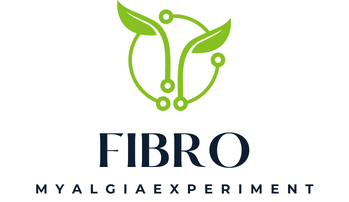Fermented foods, particularly vegetables, have been a staple in many global cuisines for centuries. Yet, it’s only in recent years that scientists have begun to unravel the many health benefits they offer. So, what makes these tangy treats such a powerful addition to our diet? Let’s delve into the world of fermentation and its extraordinary health benefits.
The Science Behind Fermentation
Before we can digest the health benefits, it’s essential to understand what fermentation involves. At its core, fermentation is a metabolic process where natural bacteria feed on the sugar and starch in food, creating lactic acid. This process not only extends the food’s shelf life but also augments its nutritional value and flavor.
A découvrir également : Can the Daily Practice of Journaling Improve Cognitive Function and Memory?
The Probiotics Advantage
The term probiotics might sound familiar. These are the live bacteria and yeasts that are good for our health, especially our gut. Fermented foods like sauerkraut and kimchi are a rich source of these beneficial microorganisms.
According to a study published by Pubmed, consuming probiotics can help enhance the gut flora, potentially leading to improved digestion and nutrient absorption. Moreover, it can aid in mitigating conditions such as irritable bowel syndrome (IBS), inflammatory bowel disease (IBD), and diarrhea.
Avez-vous vu cela : How Does Learning a New Language Later in Life Impact Cognitive Decline?
Aiding Digestion and Nutrient Absorption
Fermentation tends to break down nutrients in food, making it easier for our body to digest and absorb them. As a result, eating fermented vegetables can lead to better digestion and absorption of nutrients. For instance, the fermentation of cabbage into sauerkraut increases the bioavailability of isothiocyanates, compounds known to have anti-cancer properties, as per a study in the Journal of Agricultural and Food Chemistry.
Enhancing Immune Function
Fermented foods are not just about gut health. Surprisingly, they can also help strengthen our immune system. This is because nearly 70% of our immune system resides in our gut, asserts a review in the Clinical and Experimental Immunology. Therefore, a healthy gut contributes to a strong immune system.
On account of their high probiotic content, eating fermented vegetables can help bolster the gut microbiota, the community of microorganisms living in our intestines. A well-balanced gut microbiota can enhance our body’s resilience against pathogens, as per a study in the Cell Host & Microbe.
The Role in Mental Health
Lastly, let’s talk about the gut-brain axis – the bidirectional communication channel between our gut and brain. Recent research suggests that the gut microbiota can influence this axis, thereby impacting our mental health.
Indeed, a series of studies published in the Journal of Neurogastroenterology and Motility showed that probiotics could help alleviate symptoms of depression and anxiety. Thus, fermented foods, with their high probiotic content, might serve as a potential dietary strategy for improving mental health.
In the realm of health and wellness, fermented vegetables have emerged as a superfood, bringing an array of health benefits to the table. From enhancing gut health to boosting immunity and even contributing to mental health, these tangy delights may certainly be more than worth the pucker. However, like all foods, they must be consumed as part of a balanced diet. Before making significant changes in your diet, it’s always wise to consult a healthcare professional or a registered dietitian.
Supporting Cardiovascular Health
Fermented vegetables can play a significant role in maintaining cardiovascular health. The metabolic activities of lactic acid bacteria during the fermentation process can produce bioactive peptides, which can have antihypertensive effects. As reported in a study published in the Journal of Applied Microbiology, these peptides can help in the reduction of blood pressure, thereby supporting heart health.
In addition to this, fermented foods are known to modulate the lipid profile. A research paper in the British Journal of Nutrition revealed that consumption of fermented vegetables might lead to a decrease in total cholesterol levels. This can be a beneficial factor in preventing atherosclerosis, a disease characterized by the deposition of plaques in the arteries, leading to heart diseases.
Moreover, fermented foods such as kimchi are rich in dietary fiber and low in calories. The high fiber content can promote a feeling of fullness and aid in weight management, which is crucial for maintaining cardiovascular health.
Fermented Vegetables and Bone Health
The importance of fermented foods in promoting bone health is often overlooked. The fermentation process can enhance the nutritional profile of foods, increasing the bioavailability of essential minerals like calcium, magnesium, and phosphorus, which are vital for bone health.
According to a study on Google Scholar, fermented soybean products were shown to have a higher content of bioactive peptides and isoflavones, which can have protective effects against osteoporosis, a disease that weakens bones.
Moreover, the lactic acid bacteria present in fermented vegetables can produce vitamin K2 during the fermentation process. As per research published in the Journal of Agricultural and Food Chemistry, vitamin K2 can facilitate the absorption of calcium into the bone matrix, thereby strengthening bones and preventing bone loss.
Conclusion
In conclusion, the consumption of fermented vegetables goes beyond their tangy taste and long shelf life. The health benefits they offer are myriad and significant, spanning from gut health, immune function, and mental health to cardiovascular and bone health.
These benefits of fermented foods stem from their rich probiotic content and the enhanced nutritional profile resulting from the fermentation process. Moreover, the lactic acid bacteria involved in this process play a crucial role in conferring these health benefits.
These findings underline the importance of incorporating fermented vegetables into a balanced, nutritious diet. However, it’s essential to remember that while fermented foods help to support health, they are not a substitute for prescribed medications or a varied diet. Any significant dietary changes should be made in consultation with a healthcare professional or a registered dietitian, considering your personal health needs and conditions.






